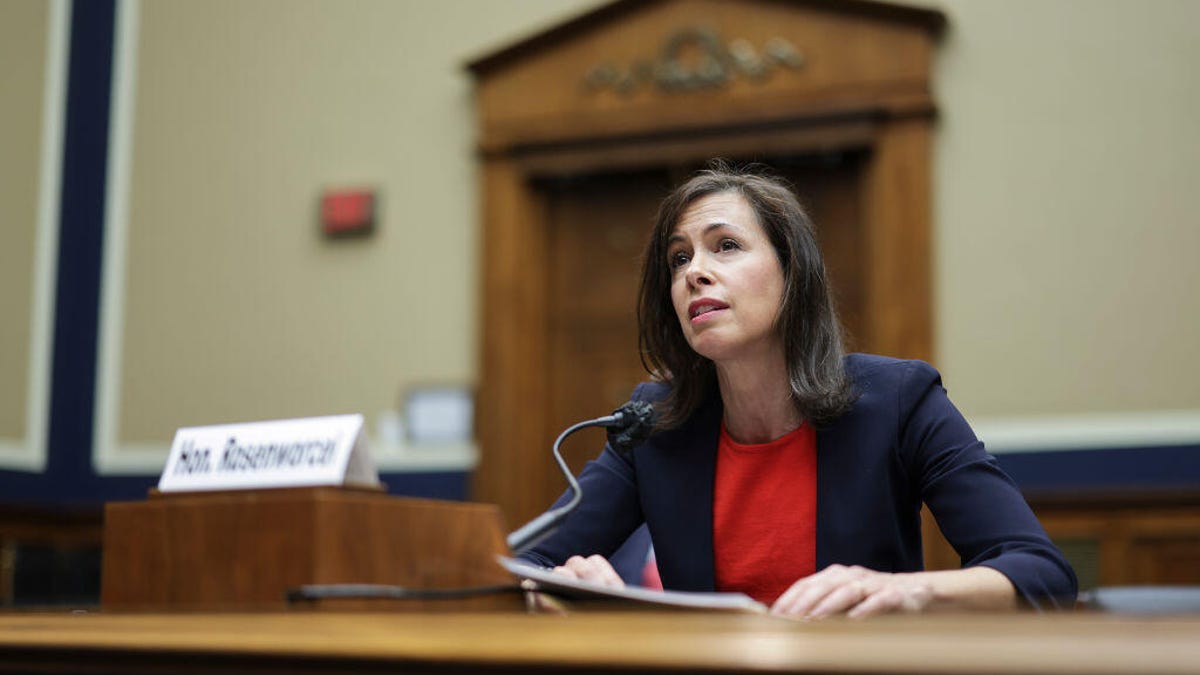 Why You Can Trust CNET
Why You Can Trust CNET FCC Votes to Restore Net Neutrality. Here's What It Means for You
The Federal Communications Commission now has the ability to regulate broadband as a utility, which means throttling or prioritizing content will be prohibited.

FCC Chairwoman Jessica Rosenworcel pushed for a restoration of net neutrality rules.
Net neutrality is making a comeback. On April 25, the US Federal Communications Commission voted to restore net neutrality rules that had been rescinded under former President Donald Trump. The five-person committee passed the resolution 3-2 along party lines.
The vote reinstates protections established in 2015 that treat broadband as a utility, like water or telephones, instead of as an information service. Most significantly, that means all internet traffic must be treated equally. Your internet service provider won't be able to do things like slow down or speed up your favorite websites based on whether those sites pay extra money to prioritize their traffic.
"I think in a modern digital economy we should have a national net neutrality policy and make clear the nation's expert on communications has the ability to act when it comes to broadband," FCC Chairwoman Jessica Rosenworcel said at Thursday's commission meeting. “This is good for consumers, good for public safety and good for national security."
Locating local internet providers
Democrats in Washington have repeatedly tried to revive net neutrality protections over the years -- including with an executive order encouraging the FCC to act -- but the commission was down a member and had been locked in a 2-2 stalemate for most of President Joe Biden's presidency. In October, though, the Senate voted to confirm Democrat Anna Gomez as a commissioner. Around the same time, Rosenworcel drafted a proposal on new net neutrality rules (which look much like the old ones). After the FCC solicited comments and feedback for several months, those rules came up for a vote.
"Broadband is a telecommunications service and should be regulated as such," Justin Brookman, director for technology policy at Consumer Reports, said in a statement. "Whether it is throttling content, junk or hidden fees, arbitrary pricing, deceptive advertising or unreliable service, broadband providers have proven over the years that without proper oversight, they will not hesitate to use their power to increase profits at the expense of consumers.”
Locating local internet providers
In addition to restoring protections regarding throttling or prioritizing traffic to certain sites, the new proposal labels broadband as an essential service, like water, power and phone services, by designating it a "common carrier" under Title II of the Communications Act of 1934. Though this gives the FCC greater authority over ISPs when it comes to things like outages and monopoly abuses, some industry experts are skeptical about how much of an impact the change will have.
"Like its predecessors, this policy debate will generate significant headlines and commentary [but] is unlikely to generate significant changes in how the ISPs operate, nor material changes in their revenues, margins or opportunities," Blair Levin, a former FCC chief of staff and telecom industry analyst at New Street Research, wrote earlier this month in a research note (subscription required).
In an April 3 statement, the FCC also highlighted other priorities, like oversight over internet outages, updated cybersecurity standards and protection of consumer data from broadband companies.
Predictably, the broadband industry has pushed back.
“In the absence of any harm, the FCC is barreling ahead with a backward-looking, unnecessary proposal,” Michael Powell, a former FCC chairman and the current CEO of trade group the NCTA (for Internet & Television Association), said in a statement on April 3. “Reimposing heavy-handed regulation will not just hobble network investment and innovation, it will also seriously jeopardize our nation’s collective efforts to build and sustain reliable broadband in rural and unserved communities.”
On Thursday, Republican FCC commissioner Brendan Carr described the net neutrality rules as a "power grab," saying, “The internet in America has thrived in the absence of 1930s command-and-control regulation by the government."
The rules are widely expected to be challenged in court by industry groups, but courts have in the past upheld the FCC's ability to regulate internet providers. The last time net neutrality rules were enacted, in 2015, the Supreme Court and US Court of Appeals for the DC Circuit confirmed that the FCC had the latitude to regulate broadband providers as a utility.

